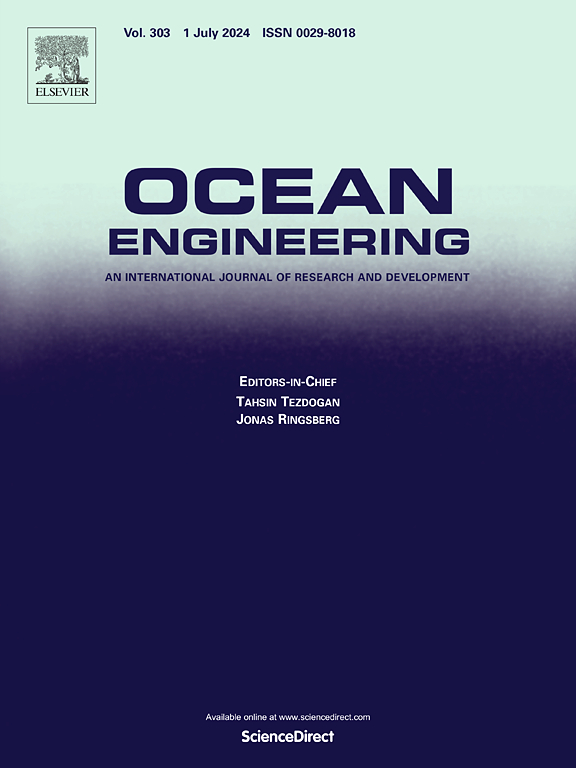Adaptive quantum multi-objective parrot optimizer for task allocation of multi-UUV systems in underwater search
IF 4.6
2区 工程技术
Q1 ENGINEERING, CIVIL
引用次数: 0
Abstract
This paper presents a novel adaptive quantum multi-objective parrot optimizer (AQMOPO) for addressing the task allocation problem of searching an underwater region by a system comprising multiple unmanned underwater vehicles (UUVs). The three objectives for evaluating the effectiveness of this task allocation are the shortest moving path, the uniform task time, and the minimum number of turns in the search process, and these three objectives are competitive and incommensurable. The conventional parrot optimizer is applied to multi-objective optimization problems in accordance with the theory of non-dominated sorting. Furthermore, the solutions and parameters in AQMOPO are described in terms of quantum and updated by quantum computation to enhance the search performance of the algorithm, taking into account the coverage circles in the mission area. Subsequently, the adaptive strategy is employed to adjust the behaviors within the parrot optimizer, while the elite retention strategy is utilized to retain the most optimal solutions, thereby enhancing the efficacy of the algorithm. The results of the simulation demonstrate that the AQMOPO proposed in this paper is capable of implementing multi-objective task allocation for multi-UUV systems, thereby enabling them to complete searches in underwater complex areas.
用于水下搜索中多 UUV 系统任务分配的自适应量子多目标鹦鹉优化器
本文提出了一种新型自适应量子多目标鹦鹉螺优化器(AQMOPO),用于解决由多个无人潜航器(UUV)组成的系统搜索水下区域的任务分配问题。评估任务分配有效性的三个目标是最短移动路径、均匀任务时间和搜索过程中的最小转弯次数,这三个目标具有竞争性和不可比性。根据非支配排序理论,传统的鹦鹉优化器被应用于多目标优化问题。此外,考虑到任务区的覆盖范围,AQMOPO 中的解和参数用量子来描述,并通过量子计算进行更新,以提高算法的搜索性能。随后,采用自适应策略调整鹦鹉优化器内部的行为,同时利用精英保留策略保留最优解,从而提高算法的功效。仿真结果表明,本文提出的 AQMOPO 能够为多 UUV 系统实现多目标任务分配,从而使其能够完成水下复杂区域的搜索。
本文章由计算机程序翻译,如有差异,请以英文原文为准。
求助全文
约1分钟内获得全文
求助全文
来源期刊

Ocean Engineering
工程技术-工程:大洋
CiteScore
7.30
自引率
34.00%
发文量
2379
审稿时长
8.1 months
期刊介绍:
Ocean Engineering provides a medium for the publication of original research and development work in the field of ocean engineering. Ocean Engineering seeks papers in the following topics.
 求助内容:
求助内容: 应助结果提醒方式:
应助结果提醒方式:


